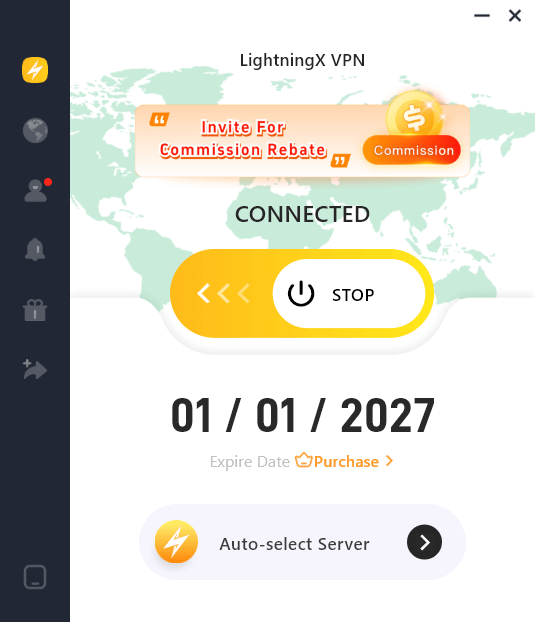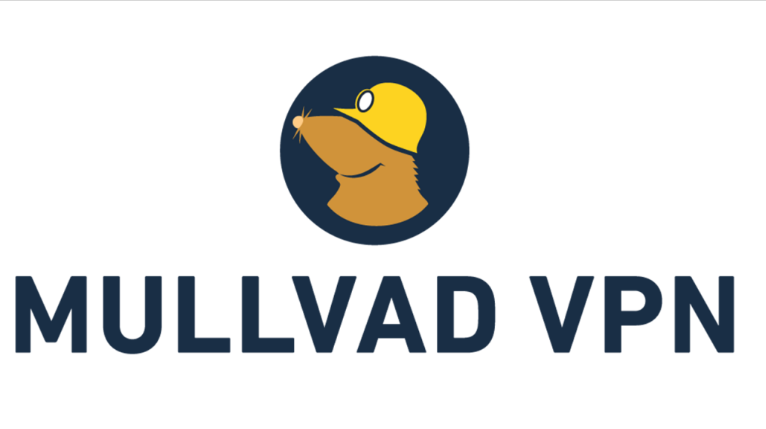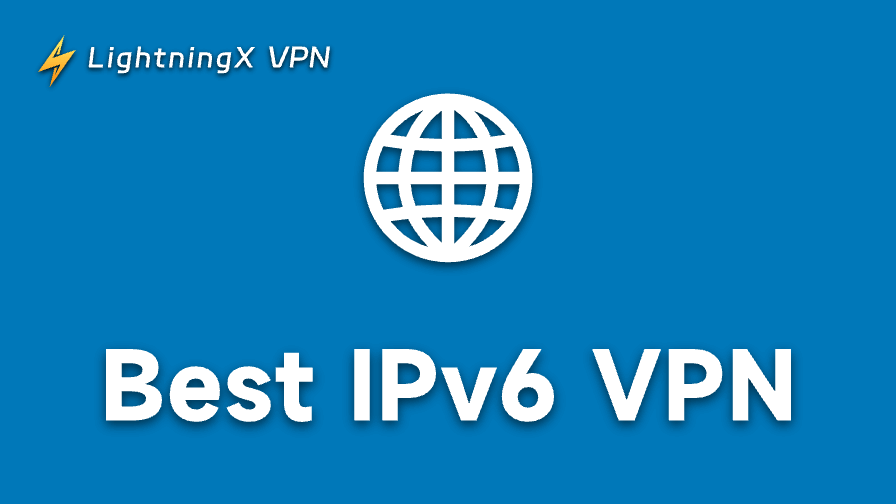Today, switching to IPv6 is an obvious trend since IPv4 address pools have run out. This change is obvious on VPNs. Some forward-looking VPN services start supporting IPv6 addresses to help users prevent issues like IP address conflict. Well, it’s also time for you to switch to a VPN with IPv6 support. In this post, we’ll list the 3 best IPv6 VPN services for you.
Why Use a VPN with IPv6 Support?
Using a VPN with IPv6 support offers several key benefits:
- Improved Security: IPv6 has built-in security features like IPsec, which provides stronger encryption and authentication for your data, making your connection more secure.
- Access to IPv6-Only Content: As more services adopt IPv6, using a VPN supporting IPv6 ensures you can access IPv6-only websites and applications without connectivity issues.
- Faster and More Reliable Connections: IPv6 simplifies network routing, reducing latency and improving the speed of your VPN connection compared to IPv4.
- Avoid IPv6 Leaks: A VPN with IPv6 support prevents potential leaks of your real IPv6 address when using IPv4-only VPNs, ensuring complete privacy.
- Future-Proofing: As the internet transitions to IPv6, using a VPN supporting IPv6 prepares you for the future and ensures compatibility with emerging technologies.
1. LightningX VPN – Top Choice for IPv6
LightningX VPN is one of the top VPN services for IPv6, offering both paid and free plans. Here are its key features.
- OS compatibility: Windows/macOS/iOS/Android/Linux
- Extension support: Chrome, Edge, Firefox
- Simultaneous connections: 3
- Free servers: 3
- Paid plan (monthly): $9.99
- 30-day money-back guarantee: Yes
LightningX VPN boasts a large server network, with over 2,000 servers across 70+ countries. All servers, including the 3 free servers on its mobile version, are configured with dual-stack support, enabling both IPv6 and IPv4 connectivity. You can easily enable IPv6 on LightningX VPN through its settings.
In addition to IPv6 compatibility, LightningX VPN offers many other advantages. Thanks to its large server fleet and great protocol (WireGuard), it minimizes the internet lag when you watch videos, stream movies and series, or browse web pages. When connecting to LightningX VPN, your download speed can reach up to 780Mbps, which is super-fast.
LightningX VPN unblocks most popular platforms, including Netflix, TikTok, YouTube, Disney+, Hulu, Steam, and Amazon Prime. It also supports a “dedicated line forwarding” feature for you to maximize the specific app or website’s loading speed.

2. Mullvad VPN – Offers Secure IPv6 Servers
Mullvad VPN is a great IPv6 VPN that supports both IPv4 and IPv6. Here are its features.
- Compatible systems: Windows, macOS, Android, iOS, Ubuntu, etc.
- Browser extension: Firefox and other Firefox-based browsers
- Simultaneous connections: 5
- Monthly price: $5.74
- 30-day money-back guarantee: Yes
Mullvad VPN supports IPv6 on all its 700+ servers in 50 countries, but only on its desktop app on Windows, macOS, and Linux. Like LightningX VPN, you’ll need to manually turn on IPv6 on Mullvad VPN through its settings menu, but it’s quite simple.
Additionally, Mullvad VPN allows you to access many geo-restricted content libraries for streaming and gaming, such as Netflix regional libraries. Also, Mullvad VPN uses protocols like OpenVPN and WireGuard, but since its servers are limited, the connection speed might not be that fast.
Plus, Mullvad VPN follows a strict no-logs policy and won’t collect users’ information, so there’s no need to worry about any data leak.

3. Proton VPN – Cost-effective IPv6 VPN
Proton VPN is also one of the best VPN services for IPv6. Check its key features below.
- Compatible systems: Windows, Android, iOS, macOS, Linux, etc.
- Add-on support: Firefox, Chrome, Safari, Edge, Opera, etc.
- Simultaneous connections: 10
- Free servers: 10
- Monthly price: $9.99
- 30-day money-back guarantee: Yes
Proton VPN has over 15000+ servers in 120+ countries. Most of these servers support IPv6, but only on its extensions and Linux apps. At the same time, you can casually switch back to IPv4 on Proton VPN thanks to its dual-stack technology.
Additionally, Proton VPN works with plenty of popular streaming apps and websites, such as HBO Max, Amazon Prime, Netflix, and YouTube.
It also has many practical features, including split tunneling and WebRTC leak protection, promising a robust security level.

Criteria for Choosing a VPN with IPv6 Support
Here’s how to choose a reliable VPN that supports IPv6.
- Dual-Stack Support (IPv4 & IPv6): Make sure the VPN supports dual-stack connections to ensure full compatibility with both IPv4 and IPv6 websites and services. This allows for seamless browsing across all types of networks.
- No IPv6 Leaks: Pick a VPN that effectively prevents IPv6 leaks, keeping your real IP address fully protected. A good VPN should route all traffic — including IPv6 — securely through its encrypted tunnel.
- Server Availability and Locations: Check whether the VPN offers a sufficient number of IPv6-enabled servers across various locations. This helps ensure global access, stable connections, and strong performance.
- Security and Encryption: Choose a VPN that uses robust encryption and modern security protocols (like IPsec or OpenVPN with IPv6 support). IPv6’s built-in security features can further enhance your privacy and data protection.
Encounter Issues When Enabling IPv6 on Your VPN?
IPv6-related issues usually happen when your device or VPN doesn’t handle the newer IP protocol correctly. If you notice connection drops or your VPN fails to mask your IP, the simplest fix is to disable IPv6 either in your VPN app or your device settings. This forces all traffic through IPv4, ensuring a stable and secure connection.
For users who want to keep IPv6 active, check whether your VPN supports IPv6 tunneling or leak protection. Some modern VPNs are built with full IPv6 compatibility, so switching to one of those can prevent future connectivity problems.
Frequently Asked Questions
Q: Is it better to have IPv6 on or off?
Generally, it depends on your VPN and network setup. If your VPN doesn’t fully support IPv6, it’s safer to keep it off to prevent IP leaks or connection errors. But if your VPN provides full IPv6 support and leak protection, keeping it on can give you better compatibility and future-proof performance.
Q: Does NordVPN do IPv6?
No, NordVPN currently doesn’t support IPv6 traffic. It automatically blocks IPv6 to prevent leaks and ensures that all your data goes through the encrypted IPv4 tunnel instead.
Q: Does OpenVPN support IPv6?
Yes, OpenVPN supports IPv6, but it needs to be configured properly. Both server and client sides must enable IPv6 in the configuration files for it to work securely and efficiently.
Q: Is there a downside to IPv6?
The main downside is incompatibility — many VPNs, websites, and networks still rely on IPv4. If your VPN doesn’t handle IPv6 well, it can cause IP leaks, slower speeds, or failed connections. However, as more services adopt IPv6, these issues will gradually fade.















